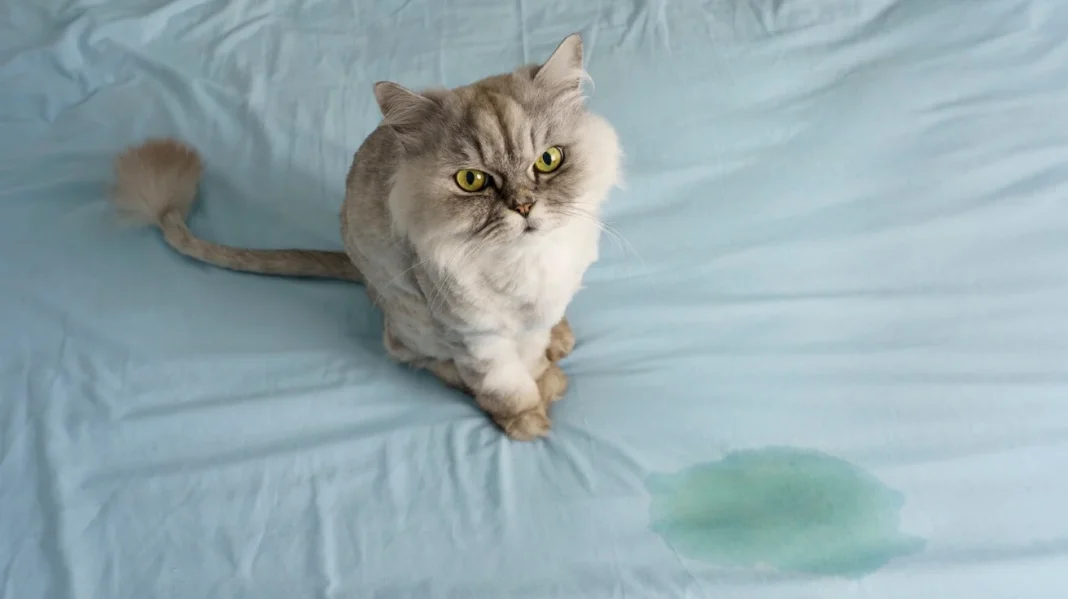There’s nothing quite as frustrating as discovering your cat has peed on your bed. While it may feel like revenge or rebellion, the truth is: your cat is communicating. Urinating outside the litter box—especially on soft surfaces like beds—is a sign something’s wrong.
The good news? You can fix it. Here are 8 vet-verified tips and tricks to help you get to the root of the problem and restore peace (and dryness) to your bedroom.
Why Is My Cat Peeing on the Bed?
Before solving the issue, it’s essential to understand what’s causing it. Common reasons include:
- Medical problems (UTIs, kidney disease, arthritis)
- Litter box aversion
- Stress or anxiety
- Territorial marking
- Dirty or inaccessible litter boxes
- Changes in routine or household
Now, let’s dive into the solutions.
8 Vet-Verified Tips to Stop Bed Peeing
1. Rule Out Medical Issues First
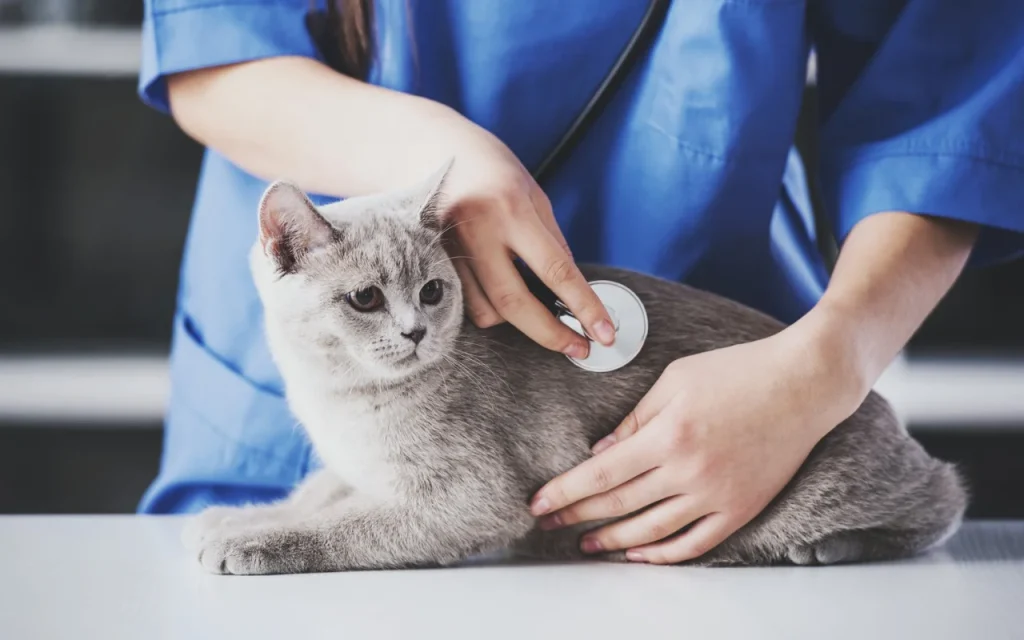
Why it matters:
Sudden litter box changes often signal pain or illness. Cats may associate the litter box with discomfort and avoid it.
Vet Tip:
Schedule a vet checkup to rule out urinary tract infections, bladder stones, diabetes, or arthritis.
2. Clean Soiled Bedding Thoroughly
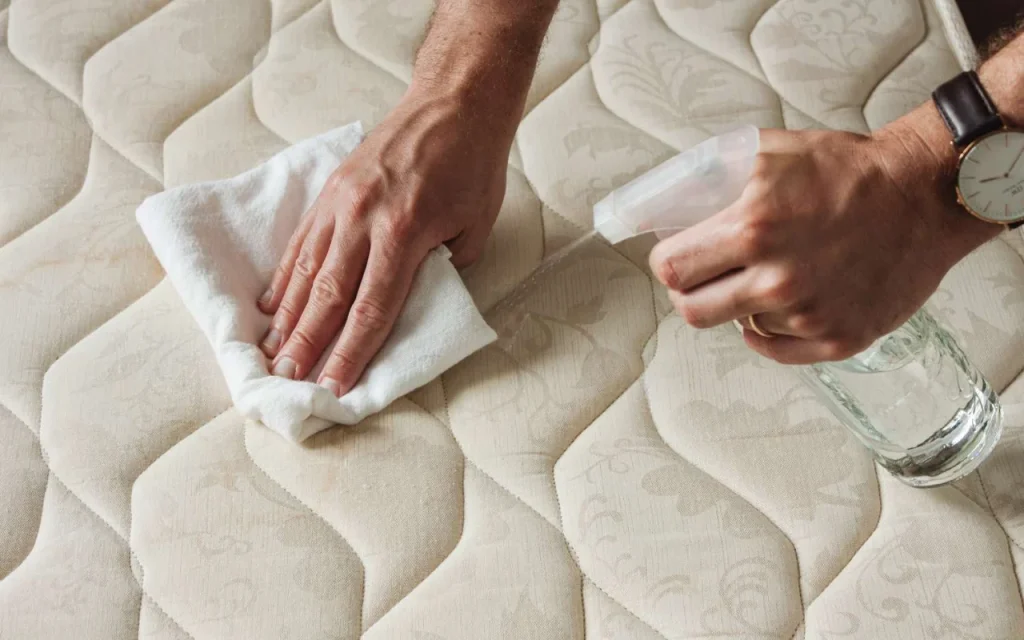
Why it matters:
If your cat can still smell urine on your bed—even if you can’t—they may return to the scene.
Vet Tip:
Use an enzyme-based cleaner to break down urine at the molecular level. Avoid ammonia-based cleaners (they smell like cat pee!).
3. Make the Bed Less Appealing
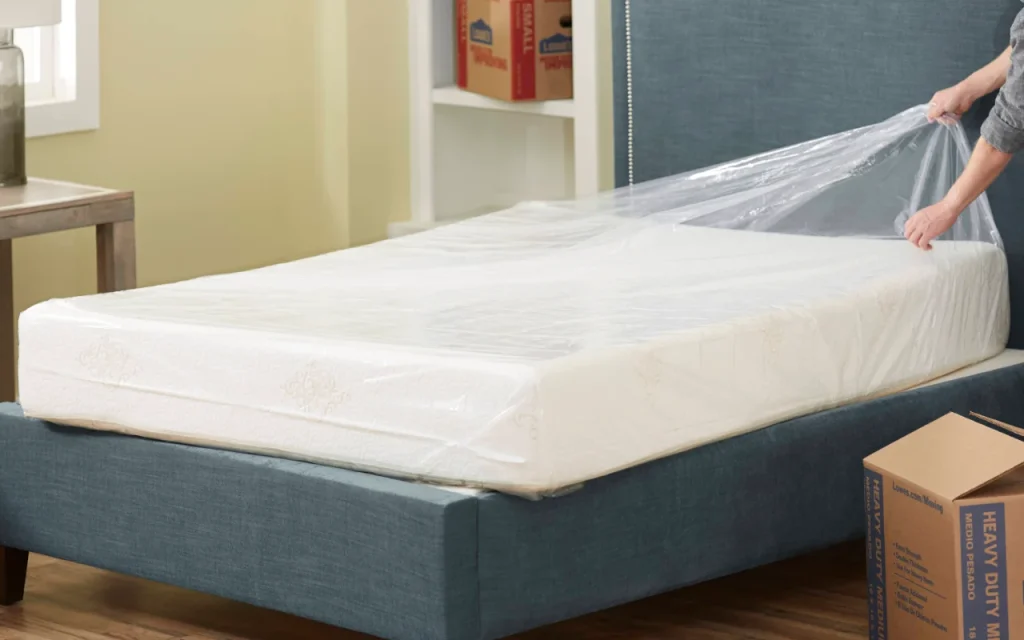
Why it matters:
Cats like soft, absorbent surfaces—but if the bed becomes less attractive, they’ll think twice.
Vet Tip:
Try placing a plastic cover, aluminum foil, or double-sided tape on the bed temporarily.
4. Provide a Clean, Comfortable Litter Box
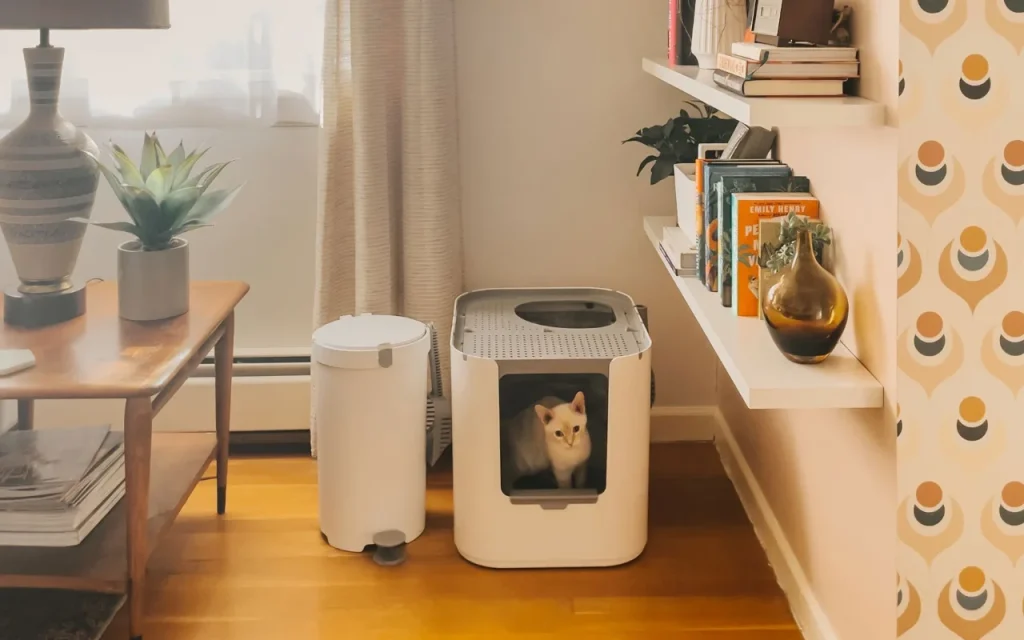
Why it matters:
A dirty, smelly, or hard-to-reach box can push cats away.
Vet Tip:
Scoop daily, wash weekly, and provide one box per cat plus one. Keep boxes in quiet, low-traffic areas.
5. Address Stress & Anxiety
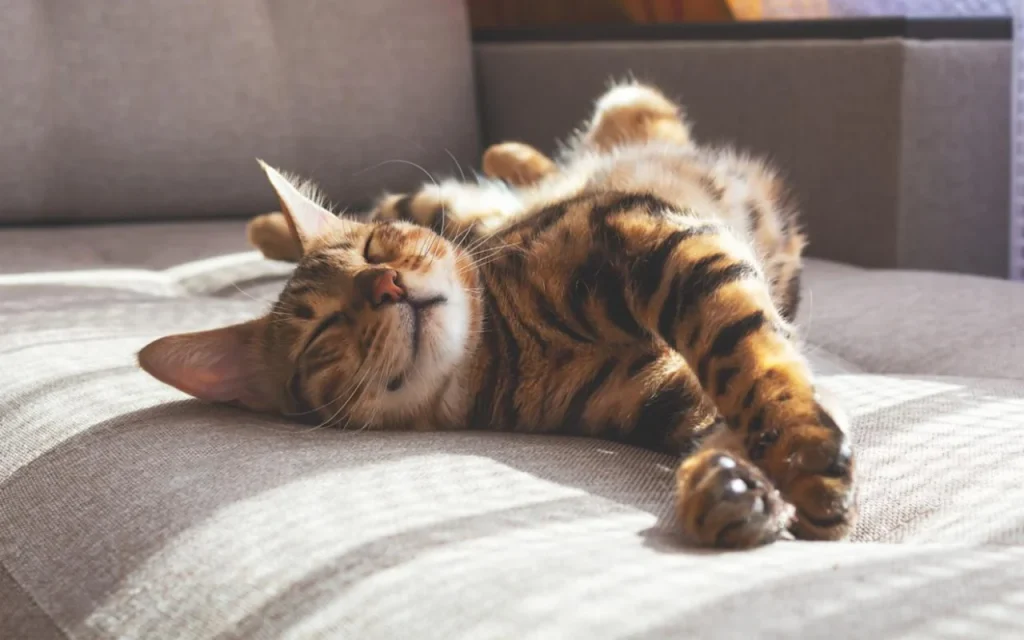
Why it matters:
Stress can lead to inappropriate urination. Moving, new pets, or even loud noises can throw your cat off.
Vet Tip:
Use calming diffusers (like Feliway), play more often, and maintain a stable routine.
6. Block Access to the Bed (Temporarily)
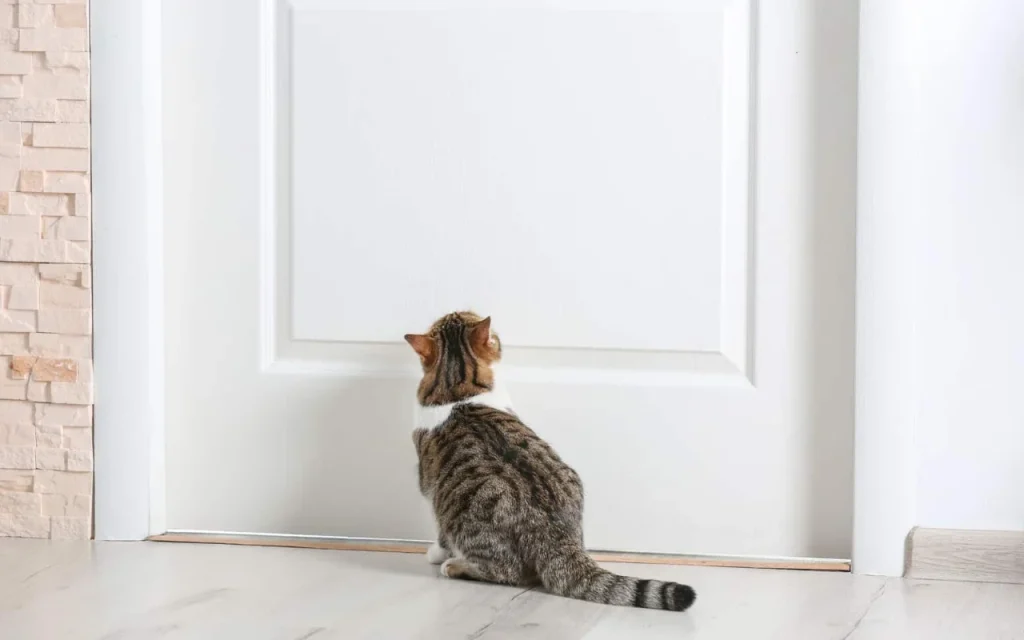
Why it matters:
If your cat can’t get to the bed, they can’t pee on it—giving you time to fix the root cause.
Vet Tip:
Close the bedroom door or use a pet deterrent mat until the issue is resolved.
7. Add a Litter Box Nearby (Short-Term Fix)
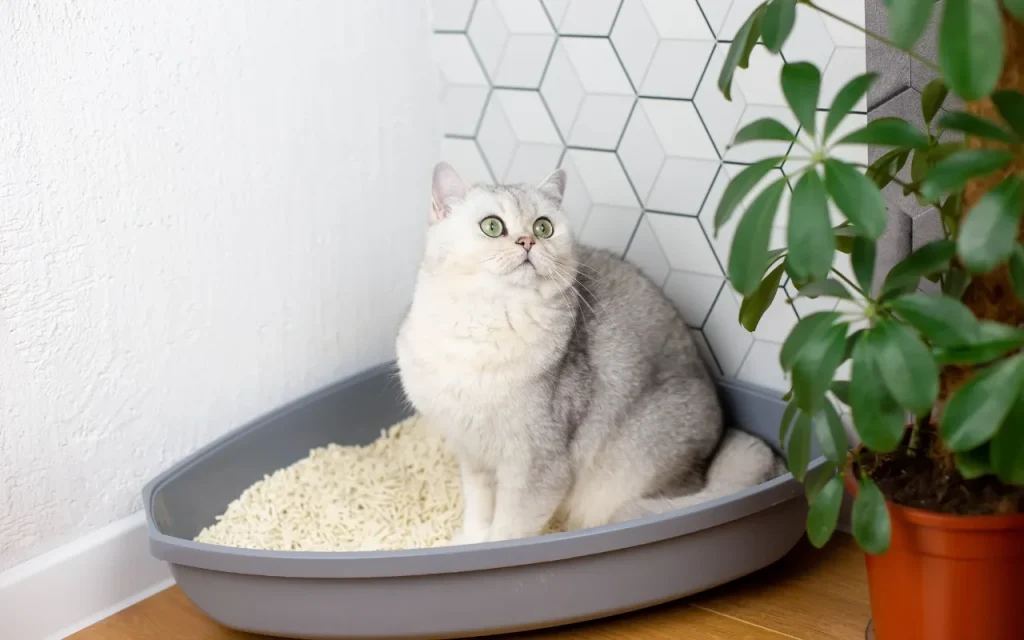
Why it matters:
If your cat is peeing on your bed, they may be avoiding a far or inconvenient box.
Vet Tip:
Place an extra litter box near the bedroom to encourage proper use, then slowly move it back.
8. Reinforce Good Behavior, Never Punish

Why it matters:
Cats don’t understand punishment—it only creates more stress.
Vet Tip:
Instead, praise and reward your cat when they use the litter box. Treats, toys, and petting go a long way.
Final Thoughts
If your cat is peeing on your bed, it’s not spite—it’s communication. By addressing the root cause—whether it’s medical, behavioral, or emotional—you can stop the behavior and rebuild trust with your feline companion.
Patience, consistency, and compassion are the keys to success.

